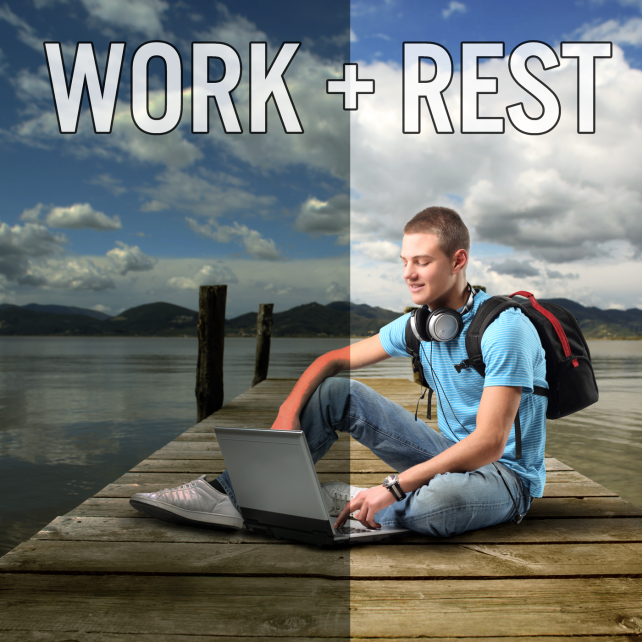It can be very hard to find rest in our world. Between a Blackberry, kids, the home phone and social media, it can be hard to focus on anything, much less rest.
One study found that people who are interrupted by technology score 20 percent lower on a standard cognition test. A second demonstrated that some students, even when on their best behavior, can’t concentrate on homework for more than two minutes without distracting themselves by using social media or writing an email.
We always wonder what we’re missing, what we should be doing, even when we’re supposed to be resting. With technology, we don’t have to suppress that – we can always know, we can always be available.
People say it’s harder and harder to unplug.
Even as I wrote this, I found myself turning to all kinds of distractions – it’s always when I try to focus on writing that I decide some amazing new change needs to be made to the app or social media. This makes it hard to work and rest – I’m constantly blending the two, and doing neither well as a result.
For this year’s vacation, I committed to turning my smartphone off, and only checking in once a day to make sure things are running smoothly with Redeem the Commute. I’ll have to physically make sure my phone isn’t around, because I know I’ll be tempted otherwise.
But that isn’t a foolproof formula – I can always go get my smartphone if I get too curious. Find rest can’t just be about strategies – because our problem is inside us. There is something inside me that is still wanting to check email, check the news, etc.
We’ll explore what that is, and what to replace it with this week.
Question: How do you “unplug” and rest? What strategies do you use?
Ryan Sim - August 25, 2015
Tuesday - Study It - Finding Rest
From Series: "Work and Rest"
Just in time for summer's blend of work and rest, Redeem the Commute is starting a new series of daily challenges to help busy people restore life to the commuting lifestyle. This seven week series will look at the meaning and purpose of work, rest, and ancient practices that have helped followers of Jesus to keep the two in perspective and balance for centuries.

